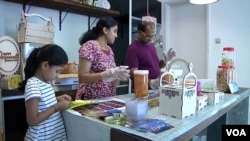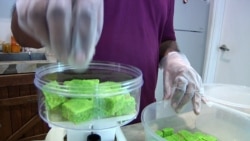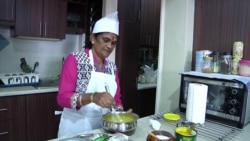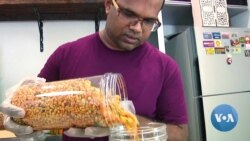Sri Themudu’s seasonal business, Diyaa Confectionary, is a success story at a time many businesses are struggling in the COVID-19 economic climate.
His company has for eight years catered to Malaysian families and local companies that buy gift baskets of snacks such as crackers, cookies and coconut candy for Diwali, the Indian festival of lights, known as Deepavali in Malaysia.
The snacks, made from scratch in the kitchens of his mother and family friends, start at about $8 each.
Sri used to go to the offices of potential corporate clients with samples but could not do so this year because of the coronavirus pandemic. Moreover, many of his longtime corporate customers cut expenses and did not place orders.
“It looked like this year was going to be a washout,” Sri said, adding, “Just a month ago I had so few sales and had no confidence that this year would work out at all.”
However, he invested almost $1,000 for a photographer and videographer to improve his website and promote his products on Instagram. The gamble paid off – he now has three times the revenue as in his previous best year, and he even stopped taking orders last Wednesday because he could not handle any more.
“The main reason why I did professional videography and photography is because people cannot touch, taste, feel the product,” Sri said. “But they want to see the best visuals in order for them to feel they’re buying the right product for their clients or their staff. This was the next best thing to sampling the actual food.”
“It all boils down to the mindset of business owners,” said Yohendran Nadar Arulthevan a researcher at the Kuala Lumpur-based think tank, the Institute for Democracy and Economic Affairs. “If they’re willing to make the changes that are needed to stay relevant to the demands that consumers have currently then you’ll survive. Otherwise, you’re better off closing down.”
Yohendran said that since the start of the pandemic many Malaysian companies have made significant changes such as instituting cashless payments and contactless delivery.
“Successful businesses figure out how to reach out to their customers,” Yohendran said.
“They know how to engage with their customers and how to adapt to what their customers want.”
Sri acknowledged that he was not sure these steps would make a difference but said he took a risk “and this year what looked like a bust turned out to be my best.”








